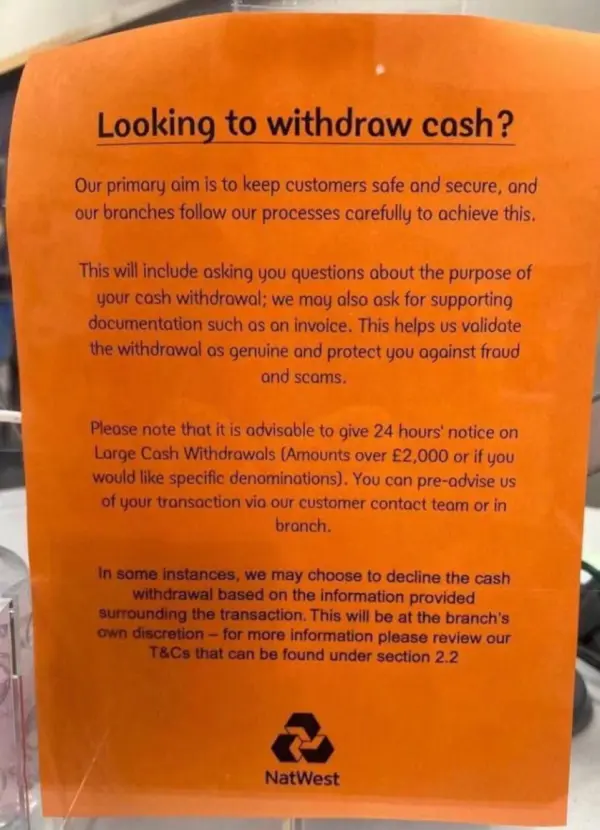this post was submitted on 02 May 2024
31 points (79.2% liked)
Monero
1581 readers
24 users here now
This is the lemmy community of Monero (XMR), a secure, private, untraceable currency that is open-source and freely available to all.
Wallets
Android (Cake Wallet) / (Monero.com)
iOS (Cake Wallet) / (Monero.com)
Instance tags for discoverability:
Monero, XMR, crypto, cryptocurrency
founded 1 year ago
MODERATORS
you are viewing a single comment's thread
view the rest of the comments
view the rest of the comments

There are plenty of scams that involve convincing someone to make an uncharacteristically large withdraw or transfer at a bank.
If a confused looking person shows up to the bank, wanting to withdraw several thousand dollars, there's a good chance they're being scammed, and convinced to mail the cash. Having a policy of asking questions in situations like this can save people from losing huge sums of money.
If you try to buy thousands of dollars of gift cards you'll be questioned similarly.
Unless they are maliciously questioning all cash withdrawals, this is a fine policy. They specify over £2000, which is pretty standard.
What you say is true, but I must note that despite such measures here and there tend to happen the "unemployed retired resident was scammed into transferring some $100 000 to scammers"
Makes me wonder just how is that possible if there are such drastic measures